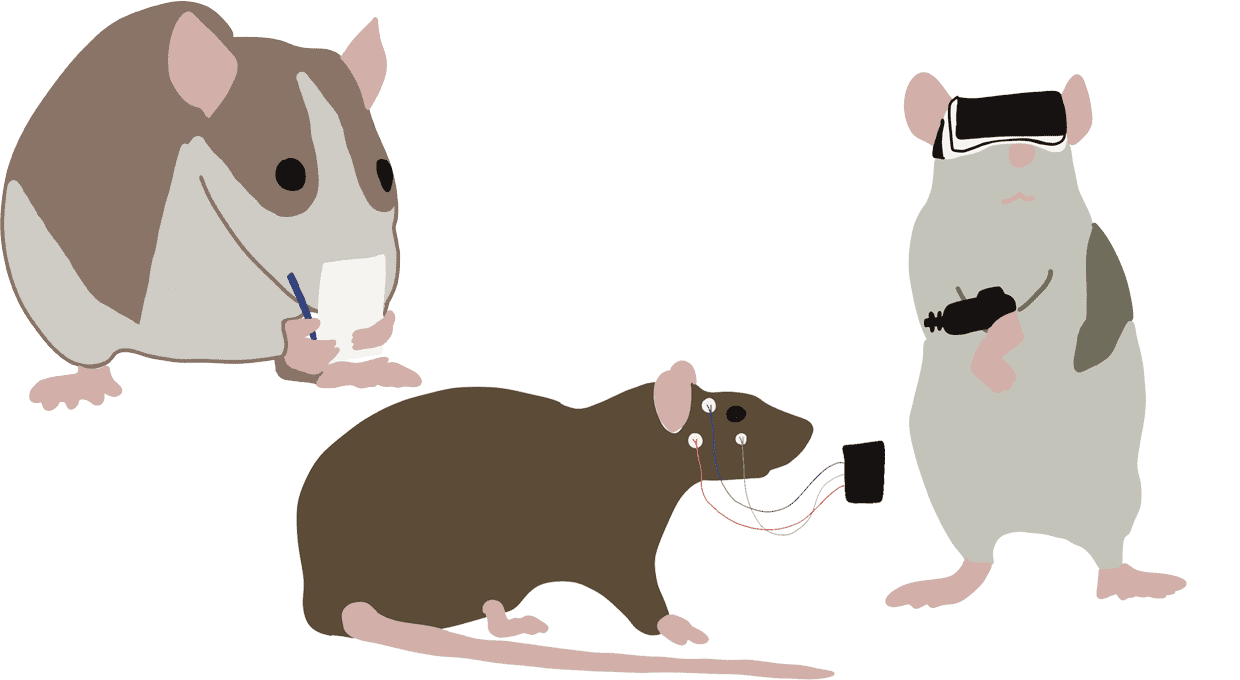With five minutes left on the clock, I make my way through an unfamiliar building in a forgotten corner of campus, an underlit hallway buzzing with the machinations of expensive and incomprehensible equipment. As I creep along, the damp carpet masking my footsteps, I observe glass cases displaying studies printed in impossibly small font, enormous posters of diagrams of teeny tiny molecules or systems of combustion, or sign-up flyers with two tickets missing. They all have two tickets missing. They teach us to do this in psychology — two tickets missing from a study sign-up will give a sense of urgency, of rapidly deteriorating opportunity. Don’t trust us, beware the two missing tickets. I reach one of many doors numbered in a dubious sequence, and knock.
I come for the purposes of earning a measly one point five per cent of my grade for PSYC1001, with an hour and a half of research participation. No one told me this would be a part of my study load, and although I’m rabidly curious, I don’t know what it will entail. The psychology honours student who answers the door has her hair in a messy bun and looks haggard. There is a pen behind each ear, and she gives me chocolate while she runs me through an explanation of the experiment.
In the time I complete my ten hours for the semester, I experience a wide variety of weird shit. I have my head clamped in place to measure the movement of my pupils. I am strung up with electrodes, and given twenty volts 100 times in a dark room. I put on a VR headset, and shoot moving dots with a laser gun while walking back and forth. Sometimes, all I do is fill in a questionnaire or respond to endless stimuli with a stream of minute permutations. The line between really boring and really intense is probably finer than you think. Naturally, I go into every one of these with eyes wide open: everything is briefed, you can back out whenever you want, or you can choose not to include your data.
One thing I’ve learned from research participation is that I’m freakishly good at memorising word-pairs. Apologies to the honours student who almost certainly had to discard my data, because I memorised 30 word pairs with no learning curve within the first stage of the experiment. However, to my great disappointment, I discovered that in most every other way, my brain is very predictable.
There was this show I watched as a kid called Brain Games on National Geographic — I would absolutely recommend it, very fun stuff — and in this show, they would go out on the street and give riddles and little tasks to the general public, light-heartedly tricking them into demonstrating psychological principles. It was like a prank show for nerds. When I watched it, I always had this secret conviction that if I was ever part of an experiment, I’d be able to see through it, to defy the rules and get the answer right. I used to squint at the television, trying to see through the optical illusions.
In contrast, research participation helped me discover an unexpected joy in being part of a larger process. Instead of impressing someone with your massive brain, you get to contribute your own tiny little scrap of data to a pool of raw reality. A miniscule data point, which an honours student magician can plug into SPSS and produce patterns, the loveliest patterns you can imagine, spelling out laws and trends like cosmic melodies. It’s humbling. Even better, you can opt-in to get a copy of the results.
As Semester One of my second year approaches its close, my honours year creeps closer. Soon, I’ll get to design one of these weird little experiments, putting out my net and see if I can catch a little piece of evidence. Getting to see the honours students and their passion projects even keeps the hope of it alive. Another thing they teach us in PSYC1001 is that a lot of us are conditioned as kids to respond to STEM with anxiety, especially girls. There have been few things more affirming than being part of the basic unit of science, contributing that little data point. I like to think of it as a little offering, a gift. Hopefully that isn’t too sentimental.
Anyone at the University can volunteer for research participation. I got into it to earn that little 5% boost, but if you want to try out some random cool stuff, and give your little data point, try it out! Who knows, you might learn something about your brilliant, predictable brain.





